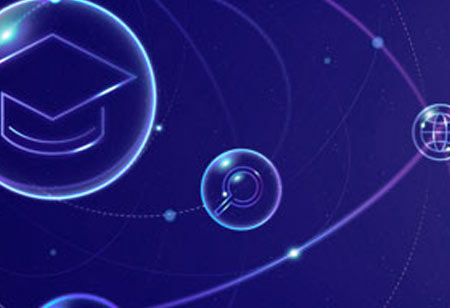THANK YOU FOR SUBSCRIBING
Be first to read the latest tech news, Industry Leader's Insights, and CIO interviews of medium and large enterprises exclusively from Education Technology Insights
Enhancing Student Engagement with Gamification and AI
Gamification and AI revamp education by enhancing student engagement and motivation and fostering critical thinking, problem-solving, and creativity through innovative learning experiences.

By
Education Technology Insights | Tuesday, August 20, 2024
Stay ahead of the industry with exclusive feature stories on the top companies, expert insights and the latest news delivered straight to your inbox. Subscribe today.
Gamification and AI revamp education by enhancing student engagement and motivation and fostering critical thinking, problem-solving, and creativity through innovative learning experiences.
FREMONT, CA: The education sector is experiencing a profound transformation driven by gamification and artificial intelligence (AI) integration. Educators are developing immersive and engaging methods that are reshaping student engagement by incorporating game-like elements into educational content and harnessing AI to personalize learning experiences.
Understanding the Power of Gamification and AI
Gamification, applying game-design elements to non-game contexts, enhances engagement and motivation by integrating features such as challenges, rewards, competition, and storytelling. This approach transforms learning into a more enjoyable and rewarding experience. Meanwhile, AI augments educational games with advanced capabilities. AI enables the creation of personalized learning paths, provides real-time feedback, and adjusts difficulty levels based on individual needs. AI can identify strengths, weaknesses, and learning styles by analyzing student data, thus facilitating tailored educational experiences.
AI-powered educational games are revolutionizing the learning process in several ways. First, they offer personalized learning experiences by analyzing student performance data to identify knowledge gaps and strengths. Based on this analysis, these games adapt to each student's pace and learning style, ensuring that the challenges and support appropriately align with the learner's needs.
In addition, these games incorporate interactive and engaging content. With features such as puzzles, simulations, and virtual reality experiences, AI-powered educational games transform students from passive recipients of information into active participants. This active involvement fosters critical thinking, problem-solving, and creativity.
Real-time feedback and support are also significant advantages of AI integration. AI delivers immediate feedback on student performance, helping learners understand and rectify their mistakes. Smart tutoring systems provide personalized guidance, act as virtual mentors, encourage self-regulated learning and boost student confidence.
Moreover, AI generates valuable data-driven insights into learning patterns and effectiveness. By analyzing this data, educators can identify areas where students may struggle and adjust their teaching strategies accordingly. This leads to more effective teaching practices and improved student outcomes.
Gamification elements in AI-powered educational games contribute to increased motivation and engagement. Features like points, badges, and leaderboards create a sense of competition and achievement. AI-driven reward systems celebrate student progress, motivating continued learning and fostering a positive educational environment.
Examples of AI-powered educational games include adaptive learning platforms, which use AI to design personalized learning paths based on performance and preferences, and intelligent tutoring systems that offer tailored one-on-one support. Simulations and virtual reality experiences create immersive learning environments, while language learning games leverage AI for interactive exercises, speech recognition, and personalized vocabulary development.
The future of education is set to be shaped by the ongoing advancements in AI and gamification. These developments promise to introduce increasingly innovative and compelling learning experiences that enable students to achieve their full potential. By leveraging the capabilities of AI and gamification, educators can cultivate a new generation of learners who are knowledgeable, adept critical thinkers, problem solvers, and lifelong learners.







